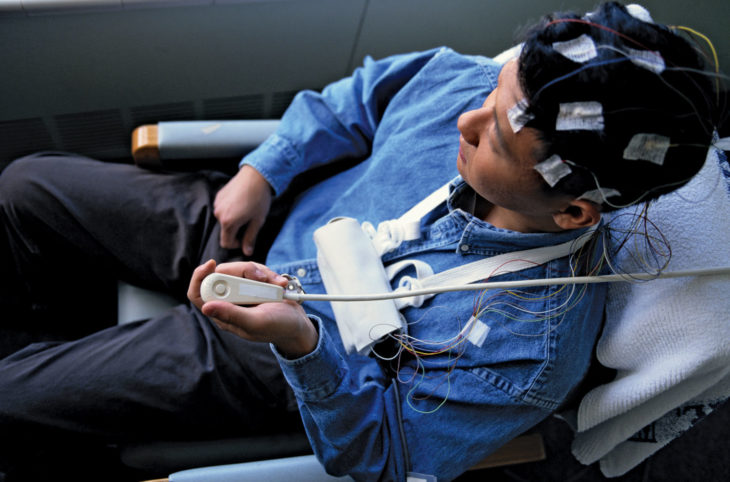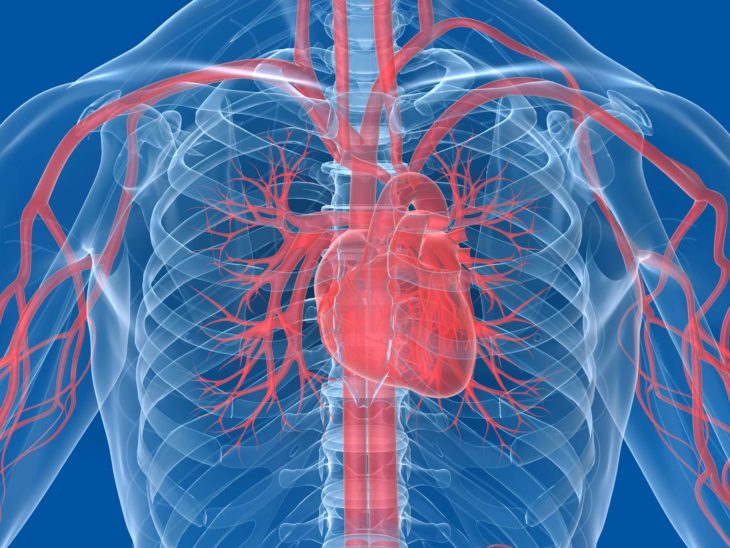Stress is inevitable in life, but so many of us deal with more stress than is healthy, and it can affect our lives in a myriad of ways. For example, when you experience stress, it can affect your relationships, your job and even things you wouldn’t think about like your driving habits. For example, if you’re stressed you may be more likely to be distracted behind the wheel.
Las Vegas law firm Benson & Bingham counts distracted driving as one of the top reasons for auto accidents.
Stress also takes a toll on your physical health, and chronic stress is linked to many co-occurring chronic diseases.
While it’s universally known that stress can cause harmful effects on your life, stress isn’t the same for every person. Different things trigger people, and what one person might find incredibly stressful may not be a stressor for another person.
Regardless of the specific triggers, our bodies tend to react to stress similarly across the board. The stress response can lead to changes in our hormones, cardiovascular functioning, nervous system, and breathing.
These effects stem from what’s called our fight or flight response, which is a chemical reaction that prepares our body to deal with what it thinks is an attack.
There is also good stress and bad stress. For example, if you feel nervous when you’re giving a speech, that’s a normal reaction, and it can actually help you get through the task at hand more effectively.
On the other hand, there are negative forms of stress, such as work-related stress, stress related to the loss of a loved one, or stress from being bullied. Ongoing negative stress is really what’s linked to negative outcomes.
Understanding the far-reaching effects of stress may help you be more proactive in dealing with it.
The following are some of the key ways stress affects your physical health.
Contents
Endocrine and Central Nervous System

Source: britannica
Your central nervous system includes your brain, and this is the system of your body that controls your fight-or-flight response. It starts with your brain, and more specifically, the hypothalamus. This part of your brain directs your adrenal glands to release cortisol and adrenaline, which are stress hormones.
When you face chronic or ongoing stress, your stress response will continue, and this can lead to issues including overeating or undereating as well as alcohol or drug abuse. These effects stem from the ongoing stimulation of the central nervous system and as a consequence the imbalance of the endocrine system.
Respiratory and Cardiovascular System

Source: diabetes
You may think experiencing stress is something that affects only your brain, but that’s not the reality.
Stress hormones affect your breathing and your entire cardiovascular system.
When you’re feeling stressed, you breathe more quickly. This is a response that occurs as your body is attempting to distribute more oxygen-rich blood throughout your body.
If you have a pre-existing breathing problem such as emphysema or asthma, it can be even more challenging to breathe when you’re stressed.
When you’re stressed, your heart pumps faster, and stress hormones are released that cause a constriction of your blood vessels. This raises your blood pressure, and if you’re dealing with chronic stress, your heart may be working overtime, and that can increase the risk of a heart attack or stroke.
Digestive System

Source: fitforwork
Your digestive system is impacted by stress in a variety of ways.
For example, if you’re experiencing stress, your liver will make more blood sugar to give you energy. If you experience chronic stress, your body might not be able to keep up with the increased blood sugar and that can increase the risk of developing type 2 diabetes.
You may be more likely to experience acid reflux and heartburn when you face a lot of stress, and it can impact how your body digests food so you may be more prone to diarrhea or constipation.
Immune System

Source: romper
When you are experiencing stress, your immune system is stimulated. That is a good thing in the short-term because your immune system being activated can help heal wounds and combat infections and bacteria.
However, with excessive, ongoing stress, your immune system will be weakened, and it will be tougher for it to fight off harmful invaders.
If you’re someone who faces chronic stress you may find you’re more susceptible to the flu and colds, and it can longer for you to recover from illnesses and injuries.
Muscles

Source: medicalnewstoday
Do you find that you often experience pain, and maybe you don’t even know where it’s coming from?
When you’re stressed, your muscles will tense up. There’s actually a reason for this—it’s intended to be a way to protect you from injury.
Once you relax your muscles will as well, but if you experience high levels of stress, your muscles may not get that opportunity.
The result can be tight muscles leading to pain in your back and shoulders, headaches, and general body aches.
Reproductive System

Source: verywellfamily
Since stress affects your endocrine and hormonal systems, it only makes sense it could affect you sexually and impact your reproductive system.
For example, with chronic stress exposure, men can experience declines in testosterone. That can impact sperm production and may contribute to erectile dysfunction.
If you’re a woman under ongoing stress, you may have irregular periods and it can make menopause symptoms worse.
If you feel like you’re experiencing more stress than is healthy and it’s affecting things like your safety, your family, and your career there are things you can do.
One of the best things to do is to get regular exercise. You can also set goals and priorities to manage your time better, and you may want to speak with your health care providers about their recommendations.
Staying connected to a strong support system is valuable as is working to identify your biggest sources of stress and working to alleviate them.
Some stress is unavoidable, but you shouldn’t be at a point where you feel like stress dictates your life.
